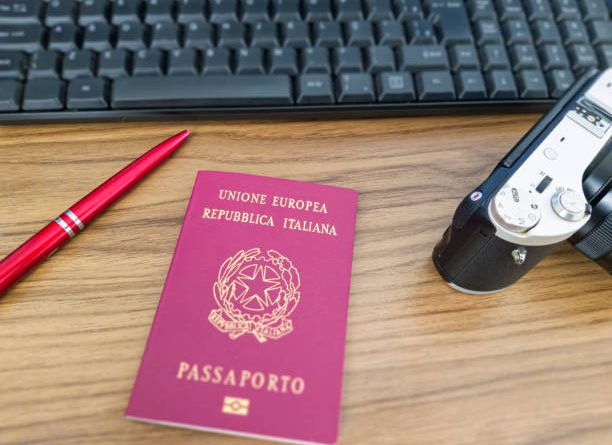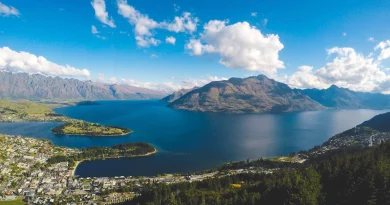Essential Tips for Tuvaluan and Vanuatu Citizens Seeking an Indian Visa
Navigating the labyrinth of visa applications can feel like an adventure in itself, especially for Tuvaluan and Vanuatu citizens aiming to explore the vibrant tapestry of India. This guide demystifies the Indian visa process, providing essential insights and practical tips tailored to your unique travel needs. From understanding the different types of visas to avoiding common pitfalls, embark on your journey with confidence and clarity. Let’s delve into the essentials that will pave your way to an unforgettable Indian experience.
1. Introduction: Understanding the Indian Visa Process for Tuvaluan and Vanuatu Citizens
Navigating the INDIAN VISA FOR TUVALUAN CITIZENS, process can be straightforward when you are well-prepared. For Tuvaluan and Vanuatu citizens, gathering the right documents is vital for a successful application. Ensure you have a valid passport with at least six months’ validity beyond your intended stay in India. Additionally, a recent passport-sized photograph that meets specific guidelines is necessary. Documentation may also include proof of travel plans, such as flight itineraries and accommodation bookings. It’s beneficial to provide evidence of sufficient financial resources for your trip, as this can strengthen your application. Depending on the type of visa you are applying for, additional papers like invitation letters or business correspondence may be required. Familiarizing yourself with these requirements will not only streamline the application process but also enhance your chances of approval. Take the time to double-check all documents before submission, as completeness and accuracy play a significant role in a successful application outcome.
2. Key Types of Indian Visas Available for Your Travel Needs
When exploring travel to India, it’s important to know the various INDIAN VISA FOR VANUATU CITIZENS, options that cater to your specific needs. Tuvaluan and Vanuatu citizens can choose from several types of Indian visas, including tourist, business, and medical visas. The tourist visa is ideal for travelers looking to explore India’s rich culture and heritage, while the business visa suits those intending to engage in trade or investment activities. For individuals seeking medical treatment, the medical visa provides access to India’s advanced healthcare facilities. Each visa type has its own requirements and duration of stay, so reviewing these details is essential before application. Furthermore, consider the e-Visa option, which simplifies the process for short visits and can be obtained online. Understanding these categories can enhance your travel experience by ensuring you select the most appropriate visa for your journey, paving the way for a hassle-free adventure in India.
3. Essential Documents Required for Your Indian Visa Application
Gathering the necessary documentation is vital for a successful Indian visa application. Start by ensuring you have a valid passport, which should be valid for at least six months beyond your intended stay in India. Additionally, you will need recent passport-sized photographs that meet the specific requirements set by the Indian authorities. Proof of travel arrangements, such as flight itineraries or hotel bookings, is also important to demonstrate your plans while in India. For certain visa types, you may need documentation related to your financial stability, like bank statements or proof of employment. If you are traveling for business or education, relevant letters from your employer or educational institution will be required. Familiarize yourself with the specific requirements based on the visa category you are applying for, as this can vary. Ensuring all these documents are in order will streamline the processing of your application and minimize any potential delays.
4. Step-by-Step Guide to Completing the Indian Visa Application Form
Filling out the Indian visa application form can be straightforward if you follow a systematic approach. Start by gathering all necessary documents, including your passport, photographs, and any supporting materials relevant to your visa type. Pay close attention to each section of the form, ensuring that all information is accurate and matches your documents. Use clear and precise language, avoiding any ambiguous terms that could lead to confusion. After completing the form, double-check for any errors or omissions, as these can cause delays in processing. It’s also wise to review the specific requirements based on whether you’re applying for a tourist, business, or other visa categories. Once you feel confident that everything is in order, submit the application through the designated online portal or at the nearest Indian consulate. Remember to keep a copy of your completed form for reference during the tracking process of your application status.
5. Tips for a Smooth Visa Application Submission Process
Submitting your Indian visa application can be a straightforward process if you keep a few things in mind. First, ensure that all required documents are gathered and organized before submission. Double-check that each document meets the specifications outlined by the Indian consulate. Pay attention to the visa type you are applying for, as different categories may have unique requirements. When filling out the application form, follow instructions carefully to avoid errors that could lead to delays. Consider submitting your application well in advance of your intended travel date to account for processing times. Additionally, verify the method of submission—whether online, by post, or in person—as this can affect how quickly your application is processed. Lastly, keep copies of all submitted documents and confirmation receipts, as they may be necessary for tracking your application status or in case of any queries. By following these guidelines, you can enhance your chances of a smooth and efficient visa application experience.
6. Common Mistakes to Avoid When Applying for an Indian Visa
Navigating the Indian visa application process can be tricky, but avoiding specific pitfalls can significantly enhance your chances of approval. One common error is submitting incomplete documentation; ensure that all required papers are included and properly filled out. Additionally, double-check your personal information for accuracy, as even minor discrepancies can lead to delays or denials. Many applicants overlook the importance of adhering to the correct visa category, which is crucial depending on the purpose of your visit. Be mindful of the visa fees and payment methods as well; incorrect payments can result in processing issues. Lastly, neglecting to track your application status can lead to unnecessary anxiety. Staying proactive in this regard ensures you are informed of any updates or additional requirements. By sidestepping these frequent missteps, you’ll streamline your application journey, making it a more efficient and stress-free experience.
7. Understanding Visa Fees and Payment Methods
When navigating the visa application process, comprehending the associated fees is vital for Tuvaluan and Vanuatu citizens. The Indian visa fees vary based on the type of visa you are applying for, whether it’s a tourist, business, or student visa. Familiarizing yourself with the current rates will help you plan your budget effectively. Payment methods also play a significant role; options typically include online payments via credit or debit cards and bank transfers. It’s crucial to ensure that your payment is completed successfully, as this can affect the processing of your application. Additionally, retaining the transaction receipt is recommended, as it serves as proof of payment should any issues arise. Be sure to check the official Indian visa application website for the most accurate and up-to-date information regarding fees and payment procedures. Understanding these aspects will contribute to a smoother visa application journey, allowing you to focus on your travel plans to India.
8. How to Track Your Indian Visa Application Status
Tracking your Indian visa application status is a crucial step in ensuring a smooth travel preparation. Once you submit your application, you can monitor its progress online through the official visa application website. By entering your application reference number and date of birth, you will gain access to real-time updates regarding your visa status. This feature not only relieves anxiety but also allows you to plan your trip more effectively. If you encounter any delays or issues, the tracking tool can provide insights that help in contacting the appropriate authorities. Additionally, keep your email and phone number up to date in your application profile to receive notifications directly. Understanding how to navigate this system can significantly enhance your overall experience, making it easier for Tuvaluan and Vanuatu citizens to manage their visa applications efficiently. Always remember that patience is key, as processing times may vary based on demand and other factors.
9. Helpful Resources for Tuvaluan and Vanuatu Citizens
Navigating the complexities of obtaining an Indian visa can be streamlined with the right resources at your fingertips. For Tuvaluan and Vanuatu citizens, utilizing official websites and government portals is fundamental, as they provide up-to-date information on visa types, application forms, and guidelines. Engaging with local Indian embassies or consulates can also offer personalized assistance, addressing specific concerns and clarifying requirements. Additionally, online forums and social media groups dedicated to travel can serve as valuable platforms for sharing experiences and tips with fellow travelers. Consider leveraging visa consultancy services if you seek expert guidance throughout the application process. These professionals can help you organize your documents and ensure that all criteria are met. Remember to stay informed about any recent changes in visa regulations, as this can significantly impact your travel plans. By tapping into these resources, you can enhance your visa application journey, making it a more manageable and successful endeavor.
10. Conclusion: Successfully Navigating the Indian Visa Journey
When applying for an Indian visa, understanding the specific requirements for Tuvaluan and Vanuatu citizens can greatly enhance your application experience. Gathering the right documents is paramount; you will typically need a valid passport, recent photographs, proof of accommodation in India, and financial statements. Additionally, it’s important to check if you require a tourist, business, or student visa, as each type has distinct prerequisites. Be meticulous in filling out the application form to avoid common pitfalls such as incomplete information or mismatched details. Submitting your application online can streamline the process significantly, but ensure you have all necessary documents in digital format. Also, familiarize yourself with the applicable fees and acceptable payment methods to prevent delays. By preparing thoroughly and adhering to guidelines, you will find that navigating the Indian visa process can be a smooth and efficient journey, allowing you to focus on your upcoming travels and experiences in India.




